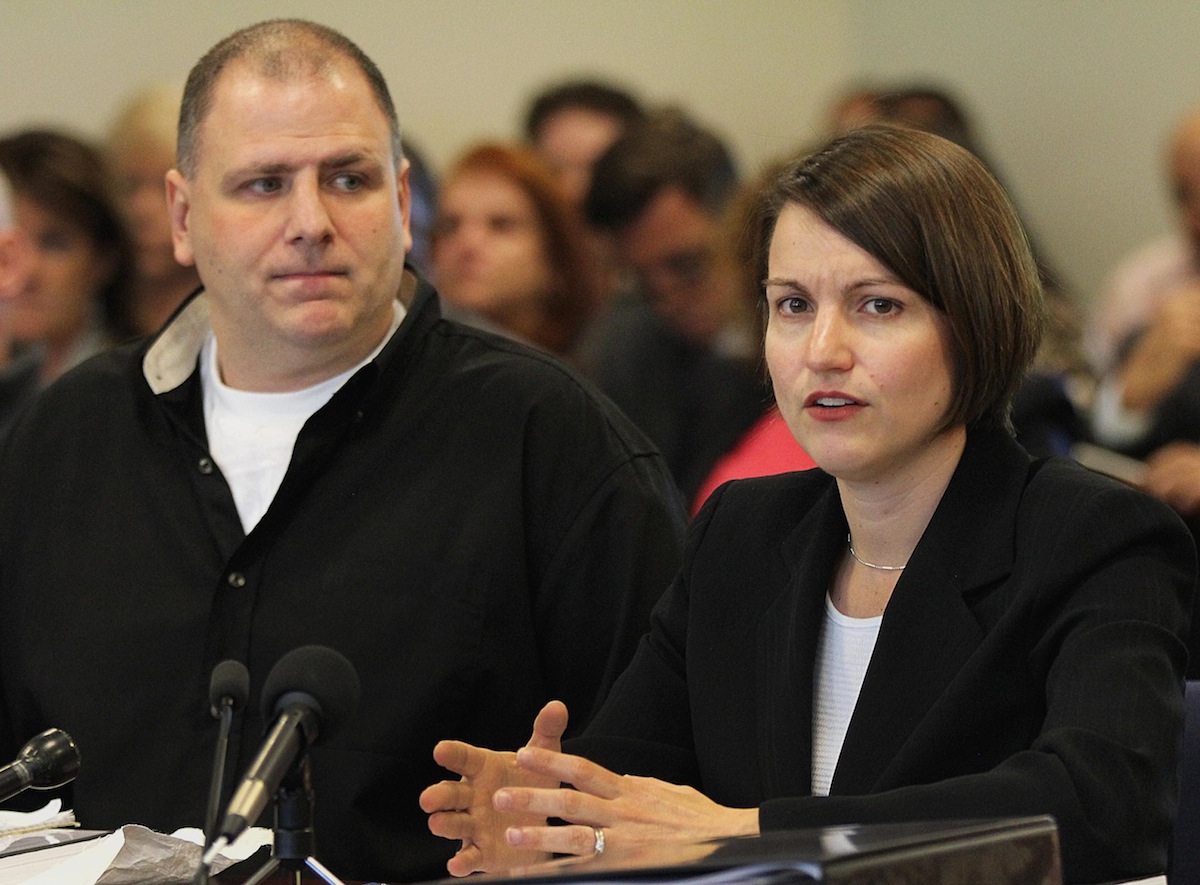State Grants Parole for Man Convicted of Murder as Juvenile

Photo via Associated press
Joe Donovan was supposed to spend the rest of his life in jail for throwing a punch that led to the murder of an MIT student. But now he’s going to walk free.
In a unanimous decision on Thursday, the state’s six-person Parole Board voted to grant Donovan’s request for release pending the completion of a months-long special program as well as a full year in a lower security program at the Department of Corrections.
“After careful consideration of all the facts … we conclude by unanimous vote that the inmate is a suitable candidate for parole,” officials wrote in their decision.
The board’s verdict was based on the nature of the underlying offense, Donovan’s age at the time of the crime, his criminal record, institutional record, views of the public, and his testimony to parole officials, they said.
Donovan, now 38, was sentenced to life behind bars without parole in 1992 when he was 17, after he blindsided 22-year-old Yngve Raustein during an attempted robbery in Cambridge. After the punch, Raustein was stabbed to death by a codefendant that was with Donovan at the time of the incident.
Donovan was convicted of first-degree murder on the theory of felony murder, which means he didn’t have advanced knowledge of, or participate in, the actual stabbing.
But due to a Supreme Judicial Court decision handed down in December—they ruled that sentencing juveniles to life in prison for murder was unconstitutional, piggy-backing on a Supreme Court ruling passed down in 2012—Donovan became one of 65 Massachusetts inmates eligible for release.
In May, just months after the SJC decision, Donovan sat before the Parole Board and pleaded his case. He told the board he had learned much during his time spent in solitary confinement, and that his implications in the Raustein murder didn’t warrant a life of imprisonment.
Donovan argued that he was a “stupid kid” when he committed his crime, and that he has taken steps to better his life while serving out his sentence.
The board scrutinized Donovan during his May hearing, and pressed him on several incidents that resulted in disciplinary actions, including the alleged assault of two corrections officers that came to search his cell unit, and other “violent” scenarios.
But Donovan assured the Board he has changed.
“I was quick to seek a violent outcome,” he said. “If violence came my way, I did not turn from it. I thought a lot about that and realized that I didn’t think about other people. … I changed myself as a person. I made a conscious decision to change.”
The board ultimately agreed, and said Donovan had fairly received punishment for the crime committed.
“His period of incarceration, 22 years, is sufficient to punish him for the robbery and the fact that he participated in the chain of events that led another person to murder the victim,” the decision said. “The sentencing goal of punishment and the deterrence have been accomplished.”
While many cases like Donovan’s have drawn protests from family members of the victims killed, Donovan’s case has stood out from the rest.
Donovan received support from elected officials who called for the parole board to let him walk free, and Raustein’s family even backed his attempt to get out of jail.
Donovan’s family said in a statement sent to Boston Thursday, hours after the announcement about his parole was made, that they were “grateful” to the board for their “careful consideration” of his case and for Raustein’s family’s continued support.
“[Donovan] looks forward to restarting his life with the support of his loved ones, friends, and the community,” the statement said.

